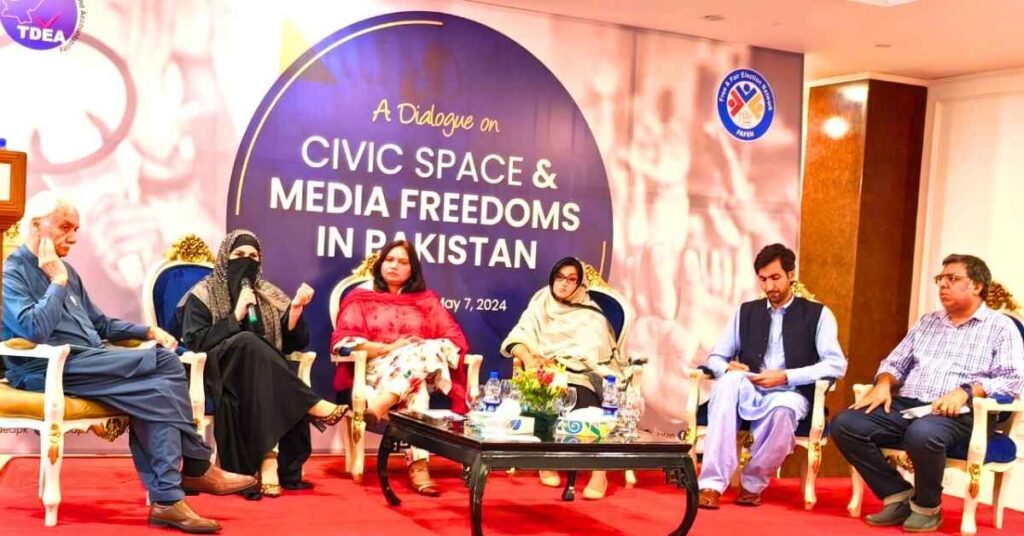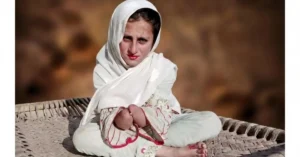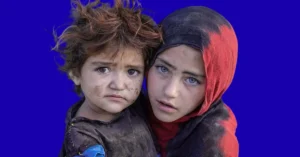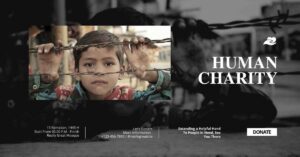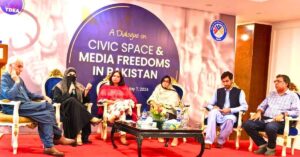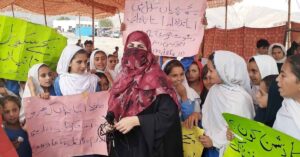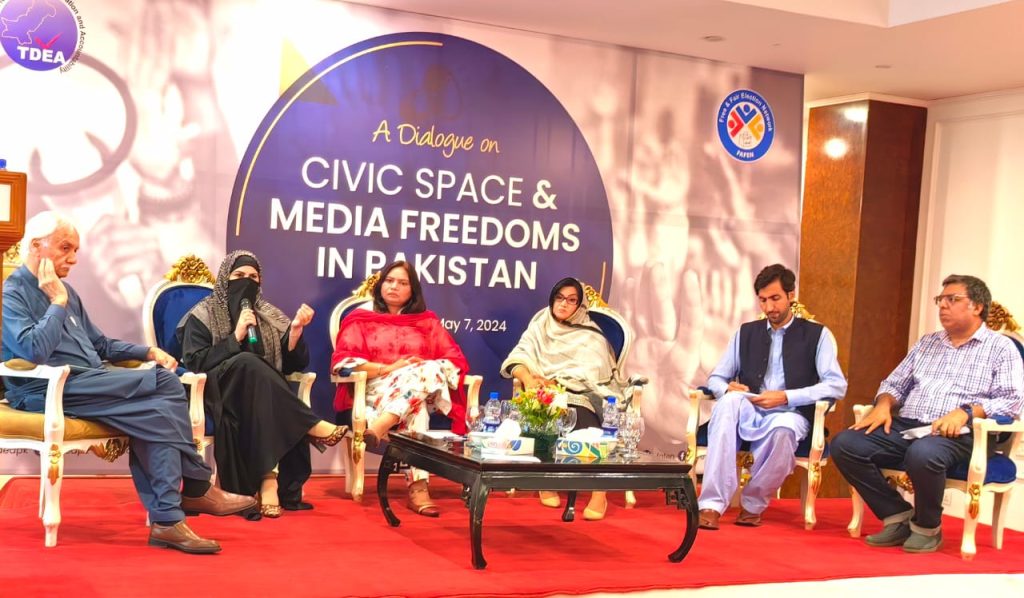
Reclaiming Voices: Civic Space and Media Freedoms in the Shadows of Conflict
In the bustling halls of the Best Western Hotel in Islamabad, a significant dialogue unfolded, orchestrated by the Trust for Democracy Education and Accountability (TDEA) and the Free and Fair Election Network (FAFEN). The event, which aimed to explore the challenges to civic space and media freedoms in Pakistan, brought together some of the most prominent journalists from across the nation. Among them was Razia Mahsood, a distinguished journalist and Chairperson of a Civil Society Organization (Razia Mahsood Development Foundation-RMDF)from South Waziristan, representing the Khyber Pakhtunkhwa region.
The focal point of this dialogue was the unique challenges faced in the erstwhile Federally Administered Tribal Areas (Ex-FATA), a region scarred by conflict yet brimming with stories of resilience and struggle. Razia, with her deep roots in the area, highlighted the severe restrictions and dangers faced by media personnel in these war-affected zones. Her insights shed light on the intricate dance of navigating through various stakeholders, including governmental bodies, local warlords, and external influencers, who often impose stringent barriers on journalistic freedom.
Challenges in the Shadows
Razia’s narrative began with an overview of the geographical and political complexities of Ex-FATA. The area’s tumultuous history of conflict and its ongoing recovery phase have created an environment where media freedoms are more restricted than in other parts of Pakistan. Journalists here face a dual challenge: reporting in a sensitive region while battling the overarching constraints imposed by both state and non-state actors.
She detailed incidents in which journalists were caught between the directives of local governance structures and traditional tribal laws, which frequently conflict with the principles of free journalism. Additionally, the lingering instability has made it perilous for journalists to cover stories that may be viewed as contentious or critical of the prevailing powers.
Reclaiming Civic Space
One of the core discussions of the event revolved around reclaiming civic space in these high-stakes areas. Razia Mahsood articulated the necessity for journalists to operate as architects of understanding and peace. She called for robust support systems that can shield journalists from potential threats and allow them to report the truth fearlessly.
The dialogue also covered the essential roles that organizations like TDEA and FAFEN play in safeguarding media freedoms. By fostering a collaborative environment where journalists can share their experiences and strategies, these organizations help formulate robust frameworks that advocate for greater transparency and freedom.
Recommendations for the Future
Drawing on the attendees’ collective experiences, several recommendations emerged from the dialogue. Razia emphasized the importance of legal reforms to ensure that the law does not protect journalists in regions like Ex-FATA so that they can bring unbiased news to the forefront. There was a unanimous call to establish more comprehensive training programs focused on safety, digital security, and ethical journalism.
Moreover, the need for a coalition of media personnel dedicated to upholding free journalism in conflict-affected areas was highlighted. Such a coalition could serve as a powerful voice advocating for policy changes and increased awareness about the challenges faced by journalists in these regions.
A United Stand for Media Freedom
The event concluded with a resonant affirmation of solidarity among the journalists. Razia Mahsood, with her poignant articulation of the challenges in South Waziristan, inspired a renewed commitment among her peers to strive for a media landscape where the truth is not held hostage by the shadows of conflict.
As Pakistan continues to navigate through its complex socio-political corridors, the voices of journalists like Razia are essential beacons of hope and resilience. Their stories and struggles remind us of the power of free speech and the relentless spirit of those who risk everything to uphold it.

